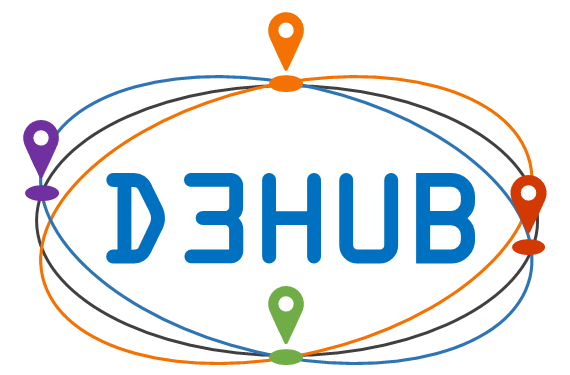BLOG
Building Data-Driven Tourism: The First Steps of the D3HUB Competence Centre
Bart Neuts, Visit Flanders Tourism destinations across Europe are facing unprecedented challenges and opportunities. From balancing the needs of residents and visitors to adapting to climate change and embracing digital tools for smarter decision-making, destination managers must navigate a rapidly evolving landscape. To support this transition, the D3HUB project is
Indicators that drive action: towards a European Competence Centre for Sustainable Tourism
Ana Moniche, Andalucía Tourism is at a crossroads. Across Europe, destinations are being asked to deliver not only economic growth but also social well-being and environmental responsibility. In this context, the D3HUB project has one clear mission: to support destinations in making better decisions through data. One of the pillars
D3HUB PILOT PHASE: FIRST ACTIVITIES AND INSIGHTS
Daniel Iglesias Gonsálvez, NECSTouR On January 15th, the consortium selected 40 destinations to participate in the D3HUB pilot phase. This pilot period, which runs from February 2025 to February 2026, aims to test and refine the services that will be provided by the future European Competence Centre, ensuring their effectiveness
The Future of Tourism: A Call for Innovation and Collaboration
By Jedrt Mikelj, Arctur Tourism is transforming. As global travel recovers and evolves, destinations must adapt to the challenges and opportunities of a rapidly changing world. The recently concluded Call for Destination Management Organizations (DMOs) under the Data-Driven Destinations Hub, D3HUB initiative marks a significant step forward. This program is designed
Presenting D3HUB at the 19th TourMIS Users’ Workshop & International Seminar on “Sustainable Tourism Indicators: Data-Driven Strategies for Destinations.”
By Bart Neus, Visit Flanders In a previous blog post on “Building the European Tourism Competence Centre: Institutions’ Role in the Success of the Project”, we outlined how the European Competence Centre actively involves EU tourism stakeholders to ensure that the Centre meetsthe needs and requirements ofDMOs and SMEs operating
Building the European Tourism Competence Centre: Institutions’ Role in the Success of the Project
By Tatiana Semenova, MITUR In the dynamic landscape of European tourism, the D3HUB project stands as a testament to the power of collaboration. As highlighted in “Generating the European Tourism Community,” the project’s mission is to establish the European Competence Centre – a pivotal institution designed to empower tourism destinations with advanced data analysis, thus enhancing their competitiveness, resilience, and sustainability. The European
European DMOs: Learning from best practices is the most desired support format
By Dirk Schmücker, NIT The D3HUB project team invited Destination Management Organisations (DMO) and other stakeholders from the tourism system to participate in interactive workshops and a Europe-wide survey. It was our objective to find out more about the data and information needs of European tourism stakeholders and their expectations towards ac European Competence Centre for data-driven destination management
